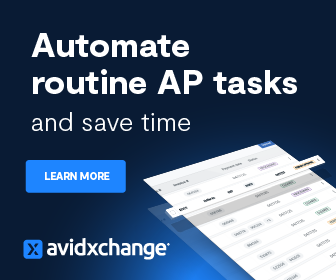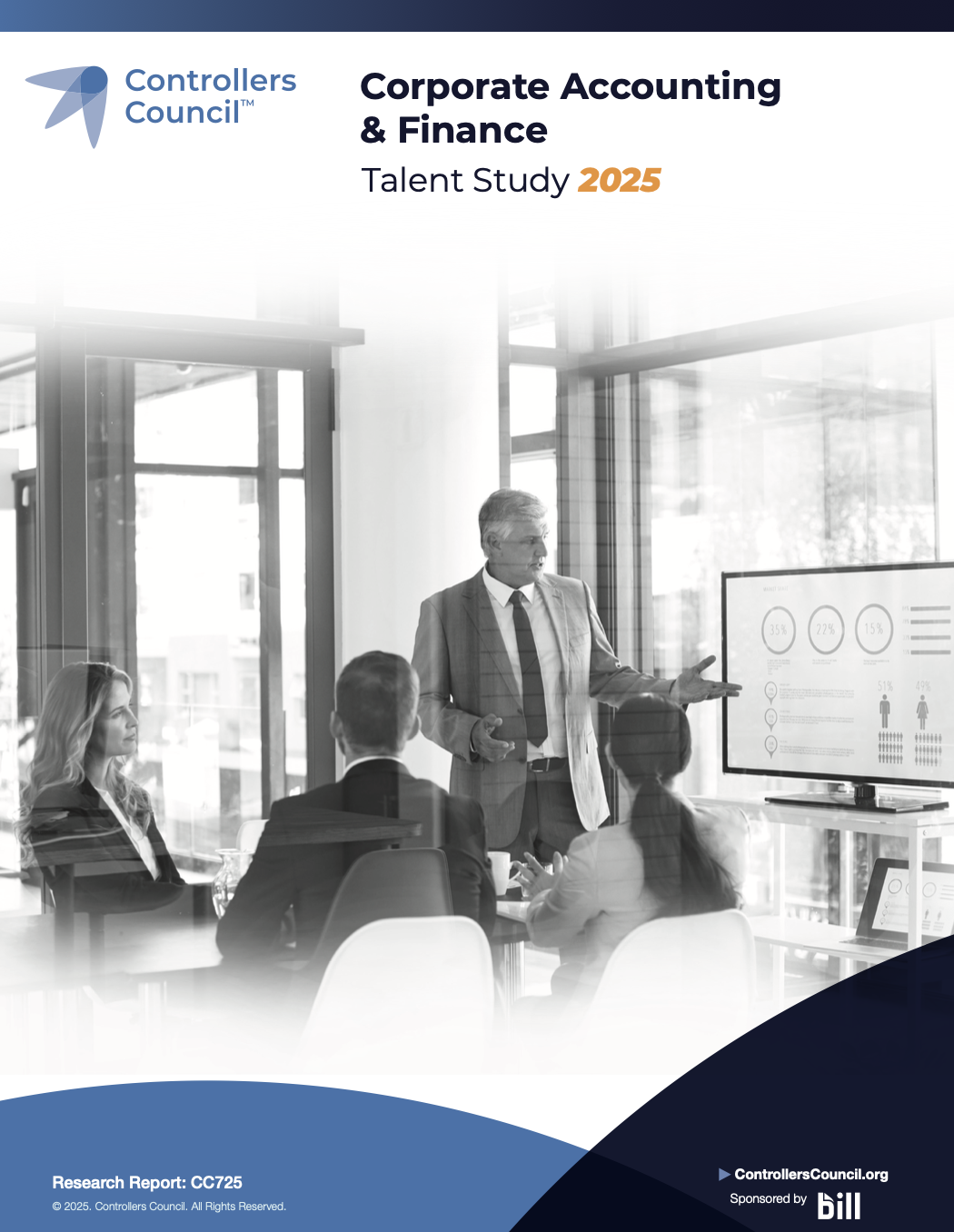Controllers Council recently held a panel discussion on How to Unburden Your Finance and Accounting Team and Keep Them Engaged, sponsored by BILL.
The panelists included Barbara Salazar, Glenn Hopper, and Kristine Dosick. Barbara Salazar is Chief Financial Officer of E2 Consulting Engineers with more than 25 years of F&A experience. Prior roles included VP of Finance, CFO, Corporate Controller. She’s been involved in SEC reporting and compliance and audit at PWC. Barbara is a CPA with an MBA from Stanford, who resides in El Cerrito, California.
Next, we have Glenn Hopper, CFO of Eventus Advisory Group. Glenn authored the book Deep Finance: Corporate Finance in the Information Age. Glenn has Harvard credentials including a Master of Liberal Arts and a graduate certificate in Business Analytics, along with the journalism background via the Defense Information School.
And finally, Kristine Dosick is Controller at evolvedMD, a behavioral health tech based in Scottsdale, Arizona. Kristine has 20 years experience, and she earned a bachelor’s degree in Integrative Biology from the University of California at Berkeley.
Following are key takeaways to this discussion. If you are interested in learning more, view the full webinar archive video here.
What aspects of finance and accounting duties or F&A duties are most challenging and least engaging?
Barbara: F&A is designed for you to provide great information to grow the business. My company is growing, but there’s a lot of information that you have to automate and classify before you could get to all the wonderful analysis. So, I would say that the most challenging is actually automating a collection of information, so you can analyze it and make decisions. And of course, this is least engaging, and the most challenging, because you must get tons of information, then process it.
What are the most typical warning signs and causes of bottlenecks in F&A processes?
Glenn: Whenever I come in as a new CFO, I like to freak everyone out, and say, “Okay, the first thing I want to do is an ISO 9000 audit.” And that’s not really what it is, but it’s, I’m dating myself a little bit, going back to the ISO 9000 era. But really, I mean EOS or whatever the latest and greatest management tool that people are talking about, as a Finance and Accounting leader, I want to know those processes all the way through to the beginning of when we first, lead, prospect, customer, and walk through the workflow, all the way up to entering them into the system, invoicing, everything in the customer life cycle process. And the interesting thing that comes out of that, is where you find these bottlenecks, you also find that you lose data, you get bad manual entry.
Bottlenecks are so important when we think about automating our processes, because you have to start with the processes before you even come up with what the software solution is. These bottlenecks, they all represent themselves in ways that we’re all familiar with. Errors can be made, delays in reporting, because these bottlenecks. But I’m going to throw a couple out that that we maybe overlook, especially when we’re just really looking at the numbers. But these bottlenecks, not only do they slow down our process, but they can lead to employee burnout. And when you start getting burned-out employees, that’s a real indication that there’s something wrong in the process, that there’s inefficiencies in there.
How can companies identify F&A processes that lend themselves to automation?
Kristine: I think the low-hanging fruit here are those low expertise, fairly standard duties. Accounts payable can be automated. Some account reconciliations can be automated. I think that where you’re going to find a challenge, is in things that start to have a little bit of a higher level of expertise in order for them to be accurate, so that you’re not having to rework what you’ve automated. And I think the challenge is trying to find out where that sweet spot is, and how much of the approval and entry process can be automated with a minimum amount of oversight.
What ways can automation contribute to greater productivity and job satisfaction in corporate finance?
Barbara: Greater productivity, and especially in the F&A function here in US, where headcount costs are high, is very important. And the only way that you could effectively do that, is through automation. You try to decide and minimize the process. Quality of blocks goes down, but if you do it through automation, quality of blocks does go up. Because machines don’t make human mistakes in all the routine tasks.
Glenn: I mean, certainly Finance and Accounting tasks have been getting automated for years. There’s all these tools out there that automate expense management, and there’s bank recs, and there’s the full close process, which I haven’t seen one of those that is truly all the way automated, but we’re getting there. And you think about now, as people are seeing what ChatGPT is doing, and they’re starting to imagine all the possibilities for that. It’s not a matter of if these tasks are going to be automated, it’s more when, and it seems like it’s coming quicker than a lot of us thought.
Kristine: Automation is taking such a large slice of work off of our plates. Automation is going to allow for more professional development, more nuanced and expanded thinking, deeper dives into areas of the business that they may be interested in. Or even to identify capabilities that you wouldn’t otherwise see if all they were doing was data entry all day. So, I think it could be a tremendous value for accounting departments to be able to free up their capable employees from data entry.
What duties can Controllers, CFOs, and their staffs undertake?
- It’s going from mindless to mindful. So, what does mindful mean? It means you can be more strategic; you can look at the bigger picture.
- You can spend time analyzing your bank deposits, and managing the FDIC insurance limits.
- Focus more on our interdepartmental work. The more that other departments know, the more that they can help us.
- With automation, employees are able to actually participate in Risk, which is very important.
- When you automate tasks, employees can finally do analytical reviews that they are responsible for.
To view the complete webcast, download full webinar here.
ABOUT THE SPONSOR:
BILL (NYSE: BILL) is a leader in financial automation software for small and midsize businesses (SMBs). As a champion of SMBs, we are dedicated to automating the future of finance so businesses can thrive. Hundreds of thousands of businesses trust BILL solutions to manage financial workflows, including payables, receivables, and spend and expense management. With BILL, businesses are connected to a network of millions of members, so they can pay or get paid faster. Through our automated solutions, we help SMBs simplify and control their finances, so they can confidently manage their businesses, and succeed on their terms. BILL is a trusted partner of leading U.S. financial institutions, accounting firms, and accounting software providers. BILL is headquartered in San Jose, California. For more information, visit bill.com.




